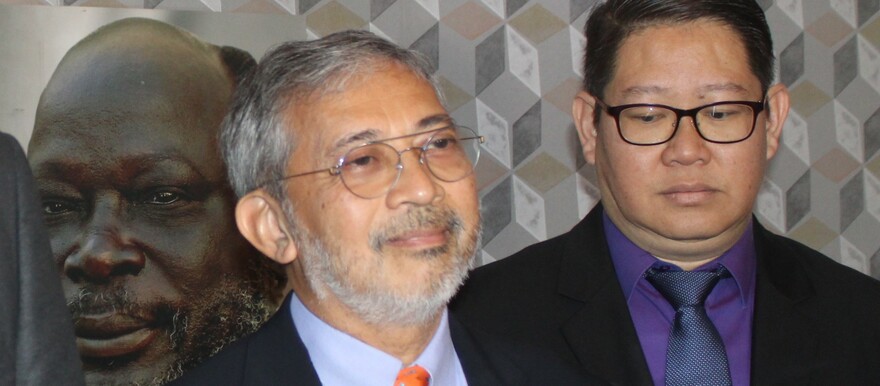South Sudan’s Ministry of Investment has contracted a Malaysian firm, Bsmart, to construct an “Investment Tower’ in Juba, Investment Minister Dr. Dhieu Mathok said.
He said the Investment Tower will be built near the Chinese Embassy in Juba and will provide accommodation to investors in addition to hosting his ministry’s headquarters.
Speaking at a press conference in Juba on Tuesday, Minister Mathok said that upon completion, the tower will “create a conducive working environment and open more foreign investment opportunities in the country.”
“In 2021, we signed a number of MoUs [Memorandum of Understandings] and among them is the construction of the Investment Tower, which is a key project for us to create an enabling environment in this country. As they are here today, we have revisited the implementation of that MoU together with other institutions,” Mathok said.
The national minister stated that the building will have a capacity of one-thousand-person conference hall.
“This is a key project for us, and we believe that by implementing this important milestone in the investment environment, things will move on well.”
The project will be funded by the African Development Bank, the Government of South Sudan and other developmental partners at an estimated cost of 28 million US dollars.
Mirzan Mahathir, President of the firm, Bsmart, said they are committed to the implementation of the Memorandum of Understanding.
“You can see Bsmart is committed to coming here, and we are already working on a number of investment projects, one of which is looking at the Investment Tower, following the MoU. We spoke today about how the Malaysian experience will help make something similar happen here,” said Mahathir.
Due to the weak private sector and history of conflict in South Sudan, there have been limited international investments. Although Foreign Direct Investment statistics for South Sudan are unavailable, the oil sector receives the majority of foreign investments, given its role in the economy.
Some factors inhibiting investment in South Sudan include a lack of skilled labour and limited physical infrastructure riddled with arbitrary checkpoints.




